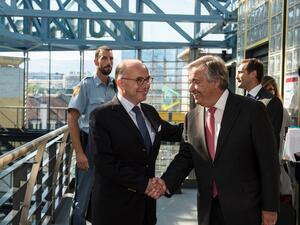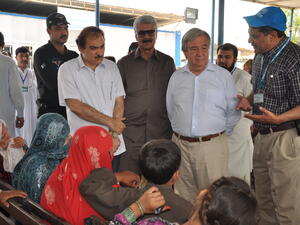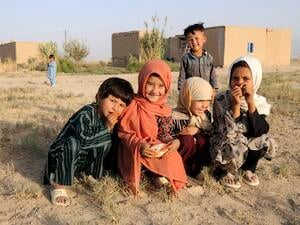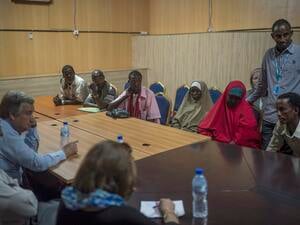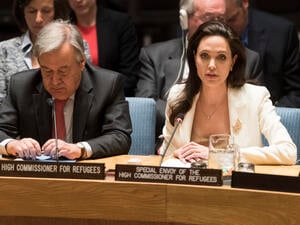High Commissioner winds up visit to Middle East region, new arrivals of Palestinians at Iraq-Syria border
High Commissioner winds up visit to Middle East region, new arrivals of Palestinians at Iraq-Syria border
The High Commissioner António Guterres is in Syria today where he is on the final leg of a weeklong mission to the Middle East region which has focused on the plight of Iraqis displaced by the conflict in their homeland. Today, he is meeting refugees living around the capital Damascus. Yesterday, Thursday, he was swarmed by Iraqi refugees desperate to tell him about their fears and difficult living circumstances when he visited a medical clinic run by the Syrian Arab Red Crescent in Damascus. Syria hosts up to one million Iraqi refugees with up to 750,000 in Jordan. Both countries have been extremely generous towards the refugees which are creating a severe strain on social services. Many are living in very difficult circumstances with their resources running out. The High Commissioner has called for broader international involvement to ease the humanitarian burden on the region.
Meanwhile in a related development, the number of Palestinian refugees stranded at Al Waleed on the Iraq-Syria border has now reached more than 750 after the arrival over the last two days of 73 refugees fleeing the violence, harassment and killings in Baghdad. More are reported to be following. The total of Palestinians at this border area has now reached 753, with 354 stuck in no-man's land and 399 remaining on the Iraqi side. An abandoned school close to the border site has been opened to accommodate the new arrivals but is already full and any new arrivals will have to live in tents. Food and relief items have already been delivered by UNHCR and the ICRC [International Committee of the Red Cross] for distribution to the new arrivals.
In recent weeks, the Iraqi authorities have become increasingly uneasy with the growing numbers at the border and would like to see alternative solutions. There are signs they may force the group to leave the border area but currently there is no safe alternative for these refugees.
For months we have been urging for a humanitarian solution for Palestinians in Baghdad who live in daily fear of their lives, lack proper documentation and have almost nowhere to flee to. We have pushed for increased protection which has not materialised and we have urged neighbouring Arab countries to open their border to provide safety. We have also asked for resettlement and, for Palestinians with family links, a return to the Occupied Palestinian Territories. An estimated 15,000 Palestinian refugees are still in Baghdad.
UNHCR last month issued a US$60 million appeal for its protection and assistance programmes for refugees and internally displaced people affected by the conflict in Iraq.


